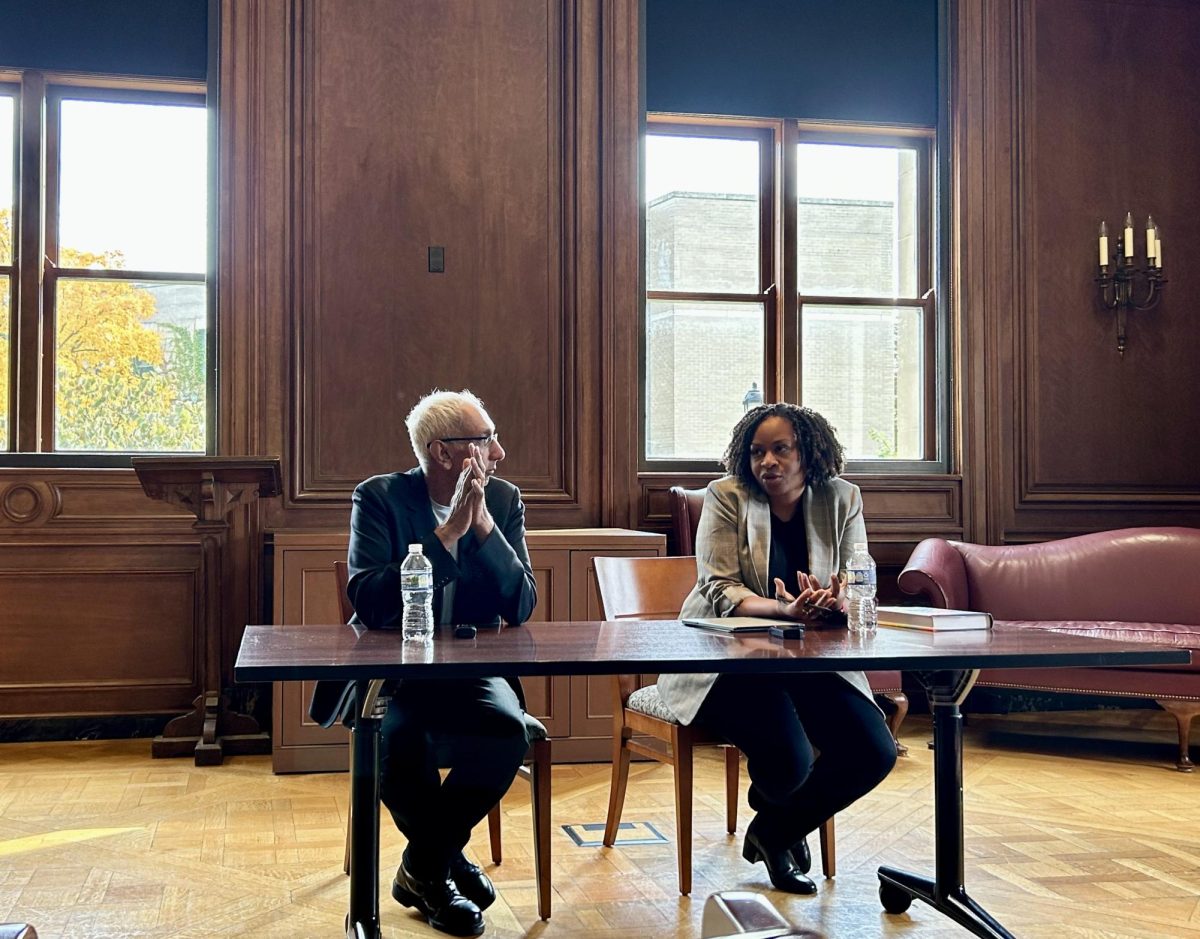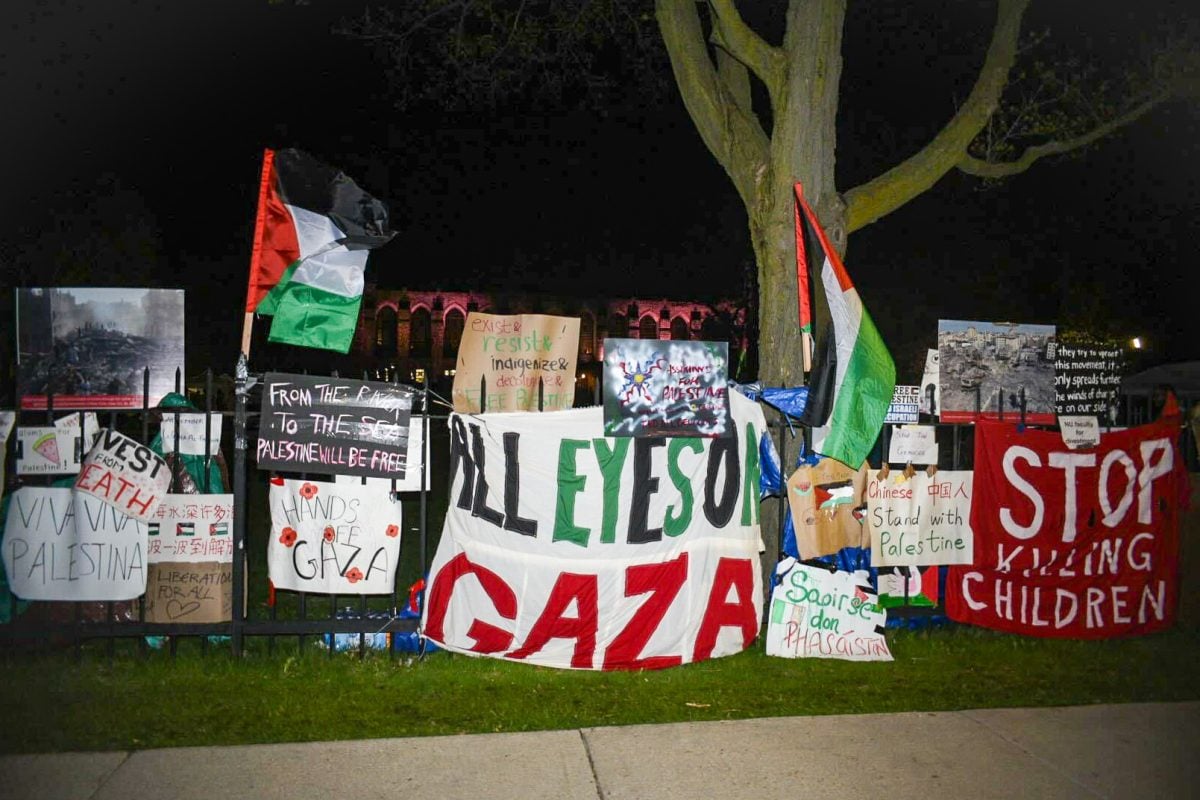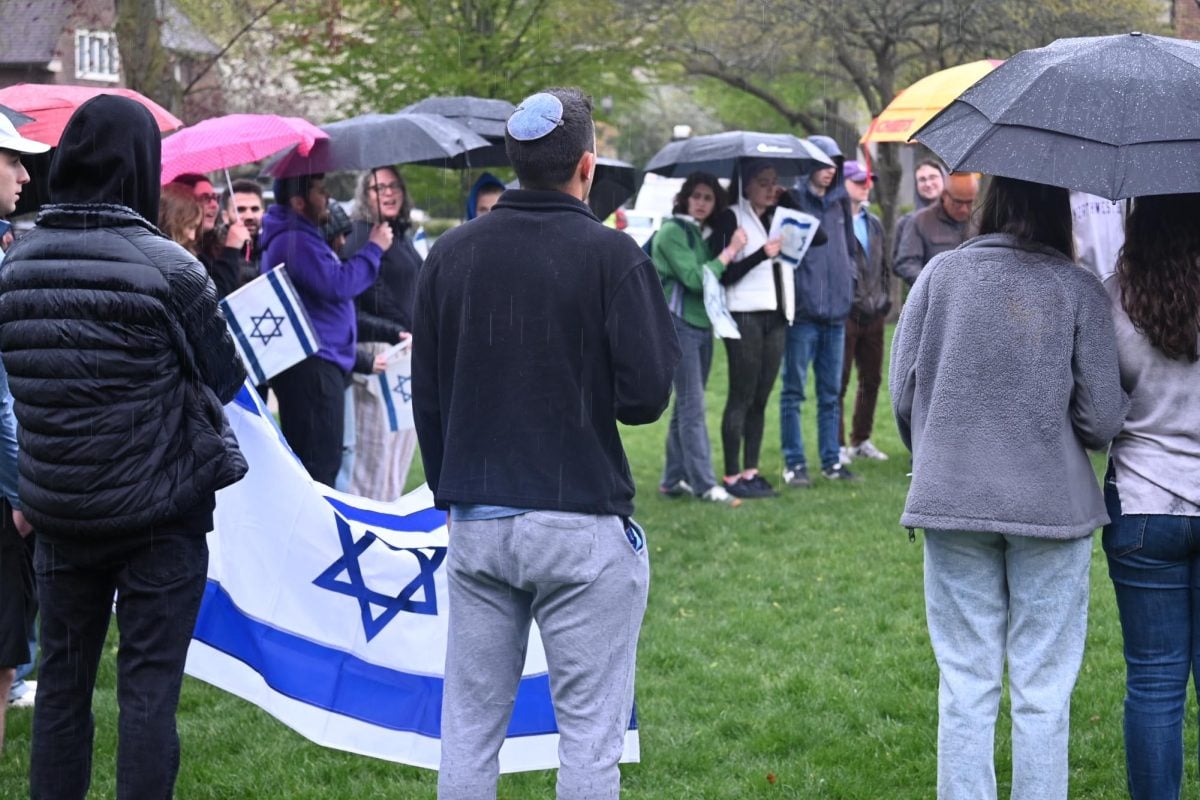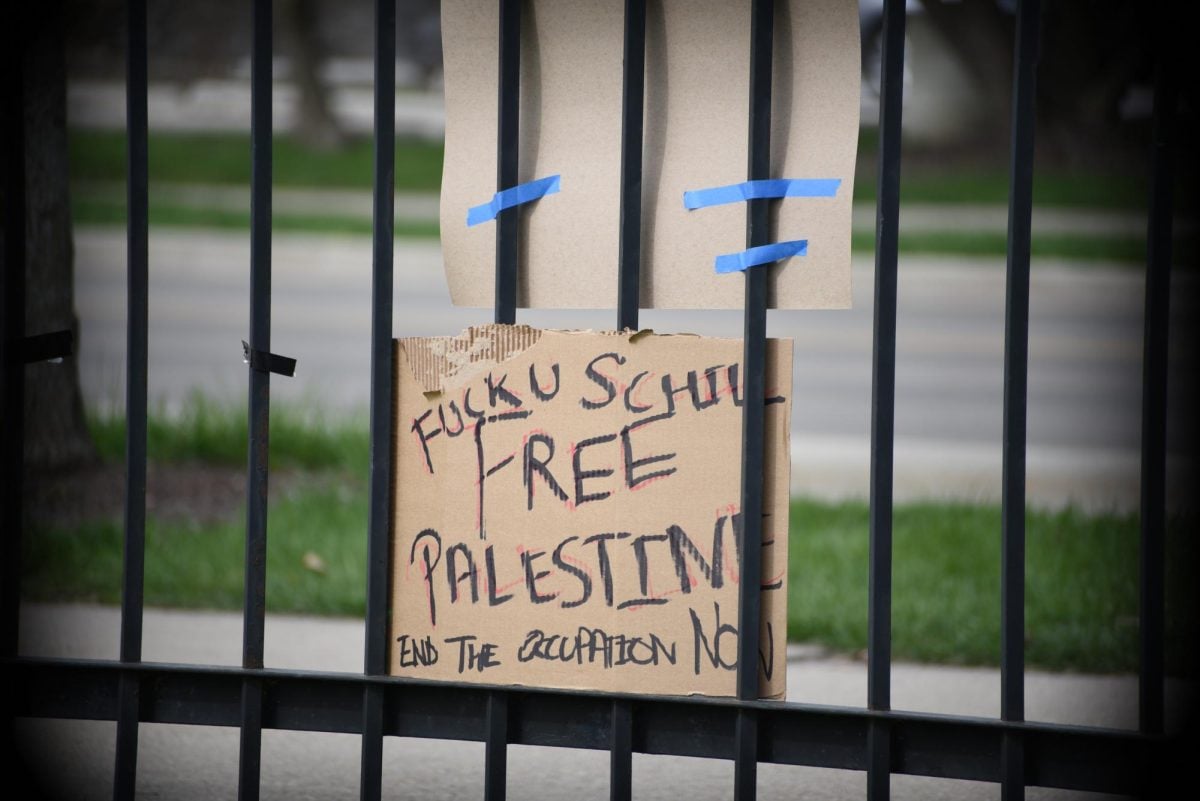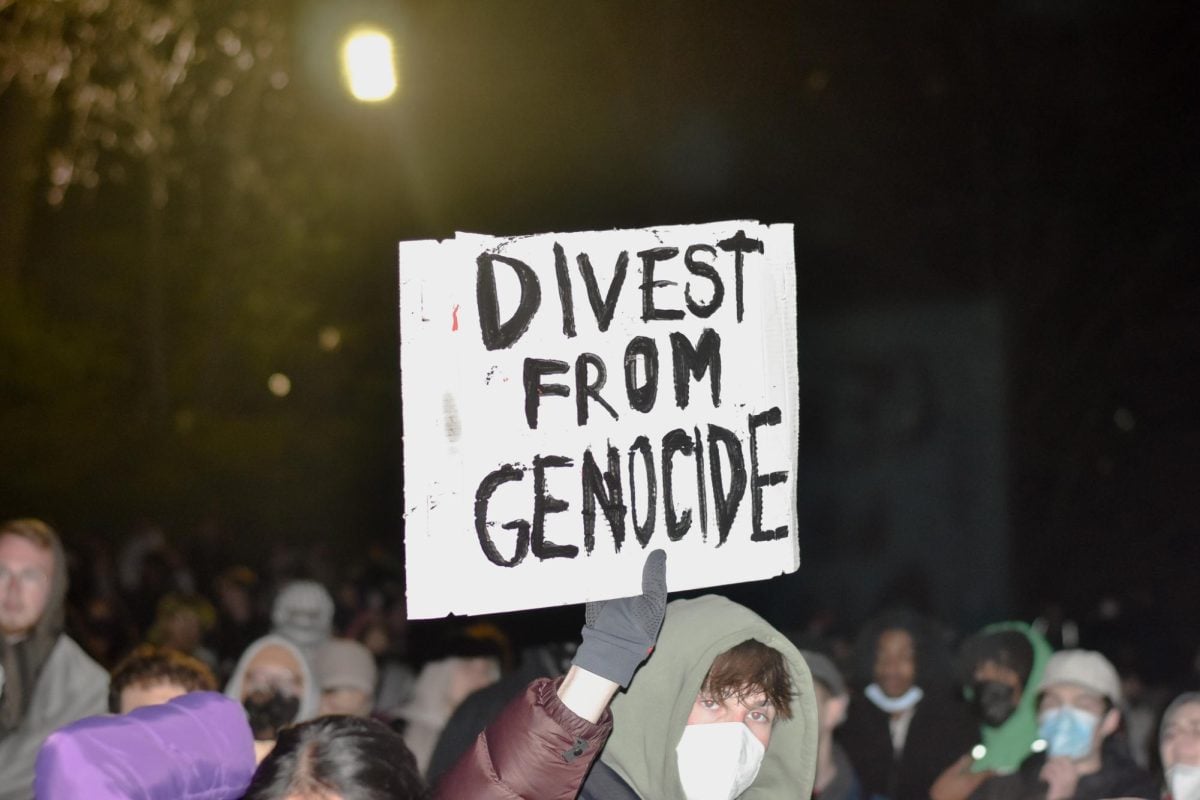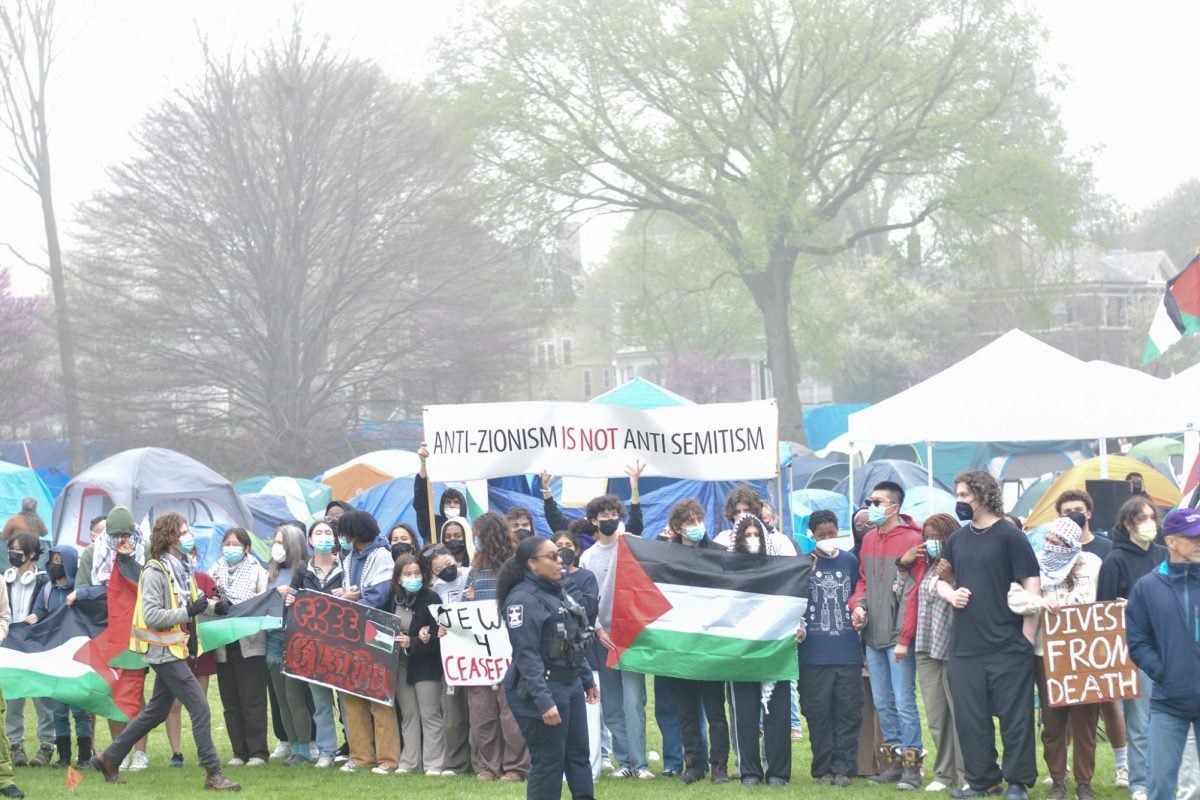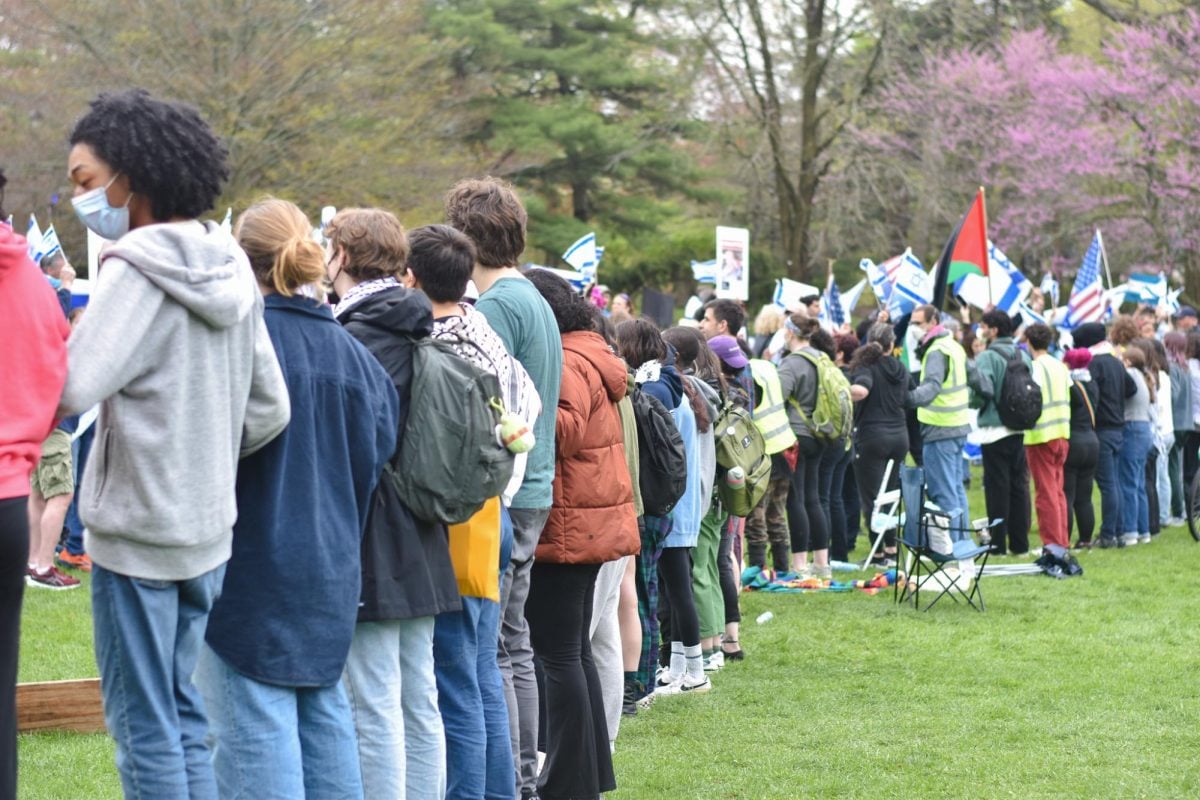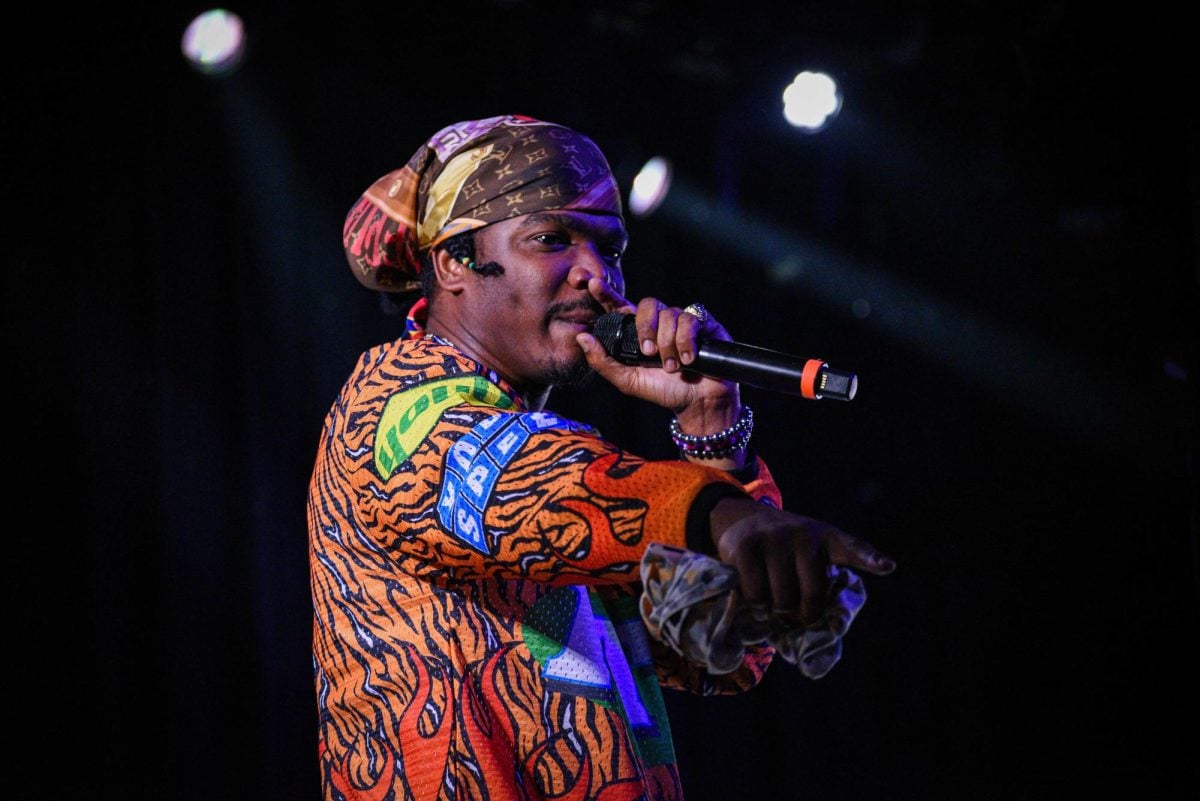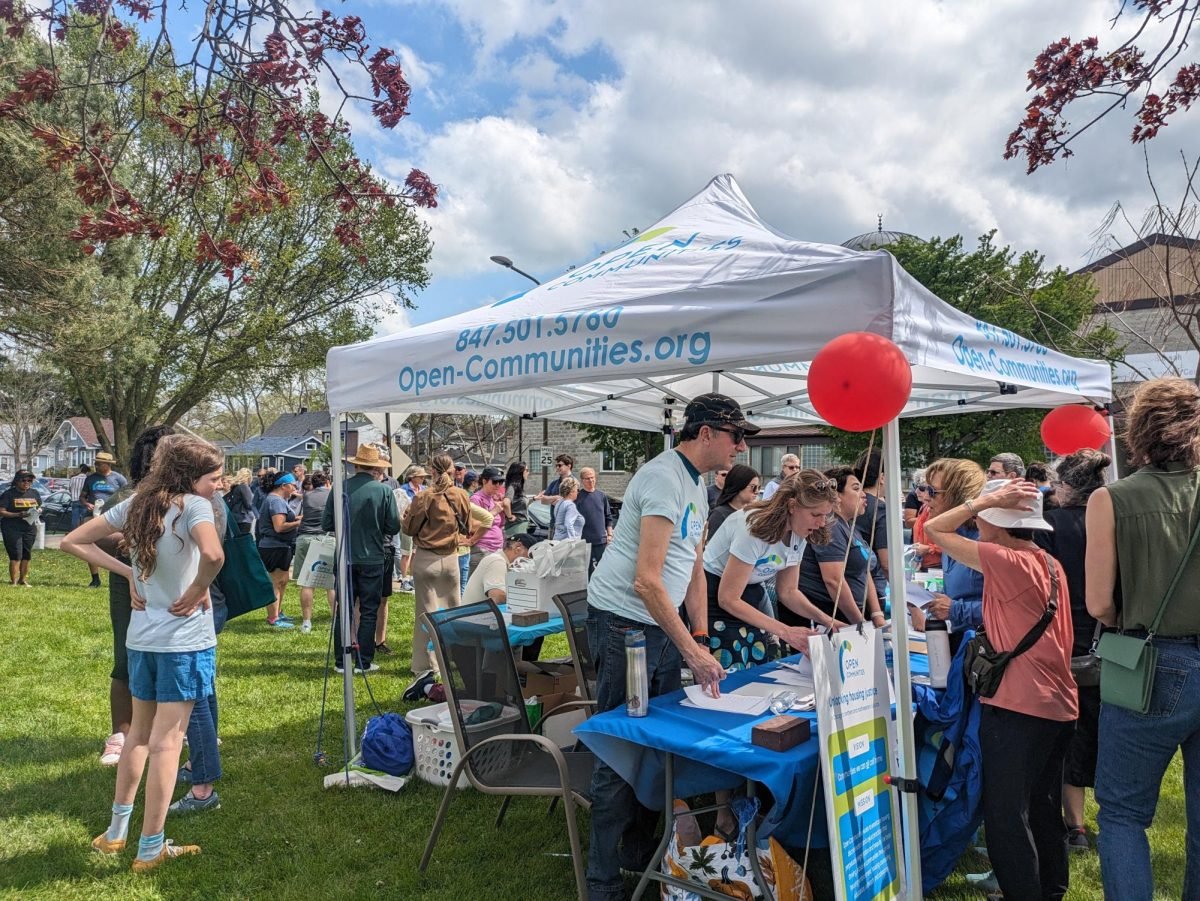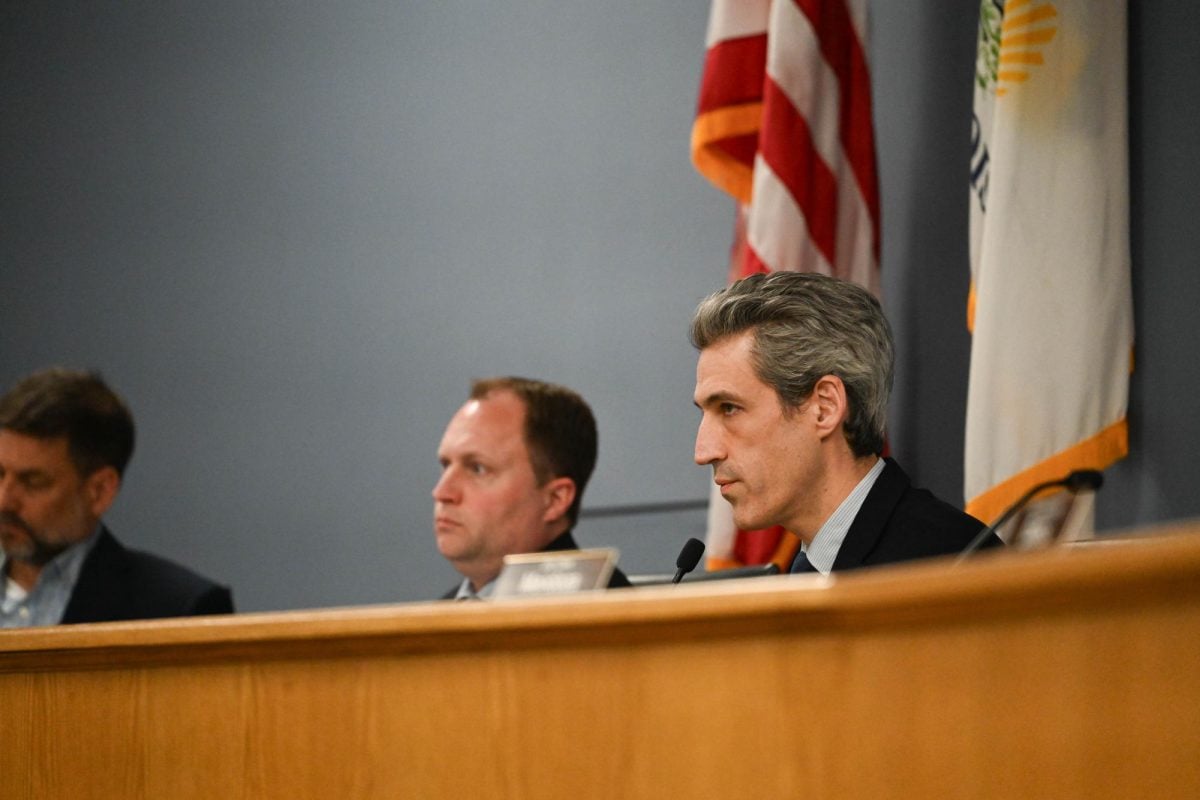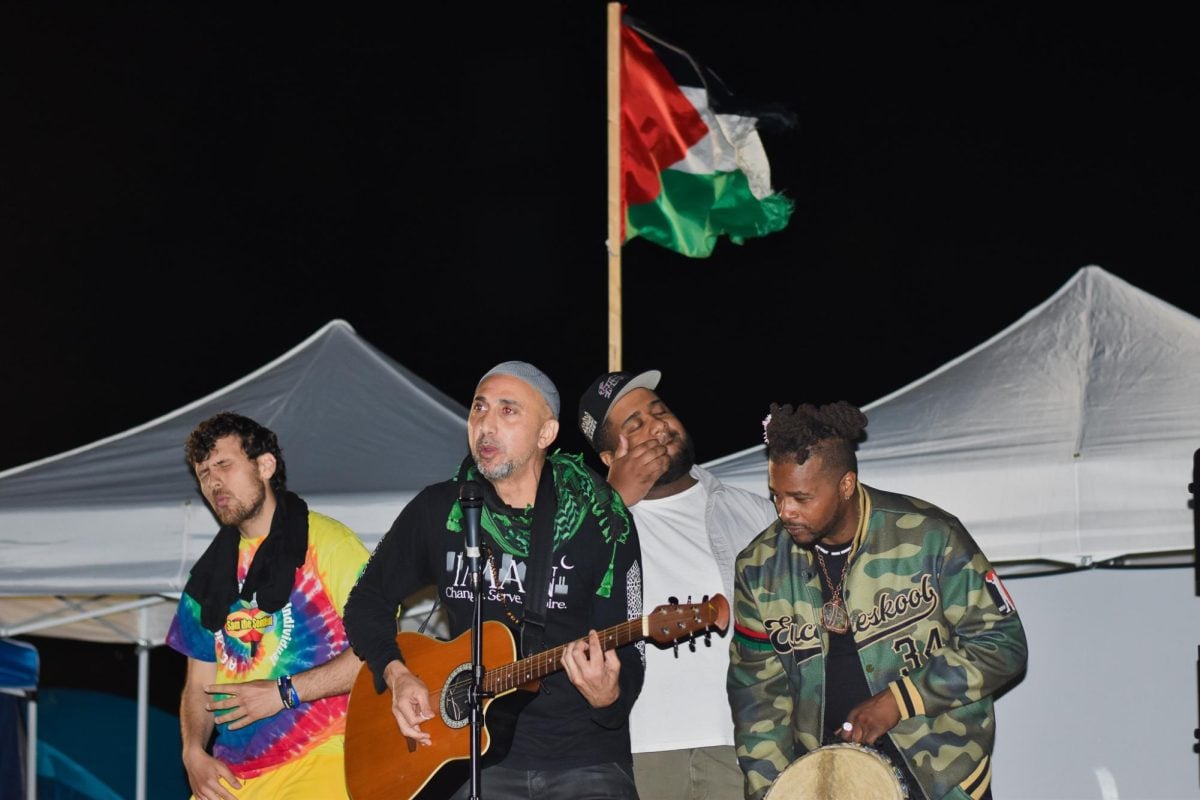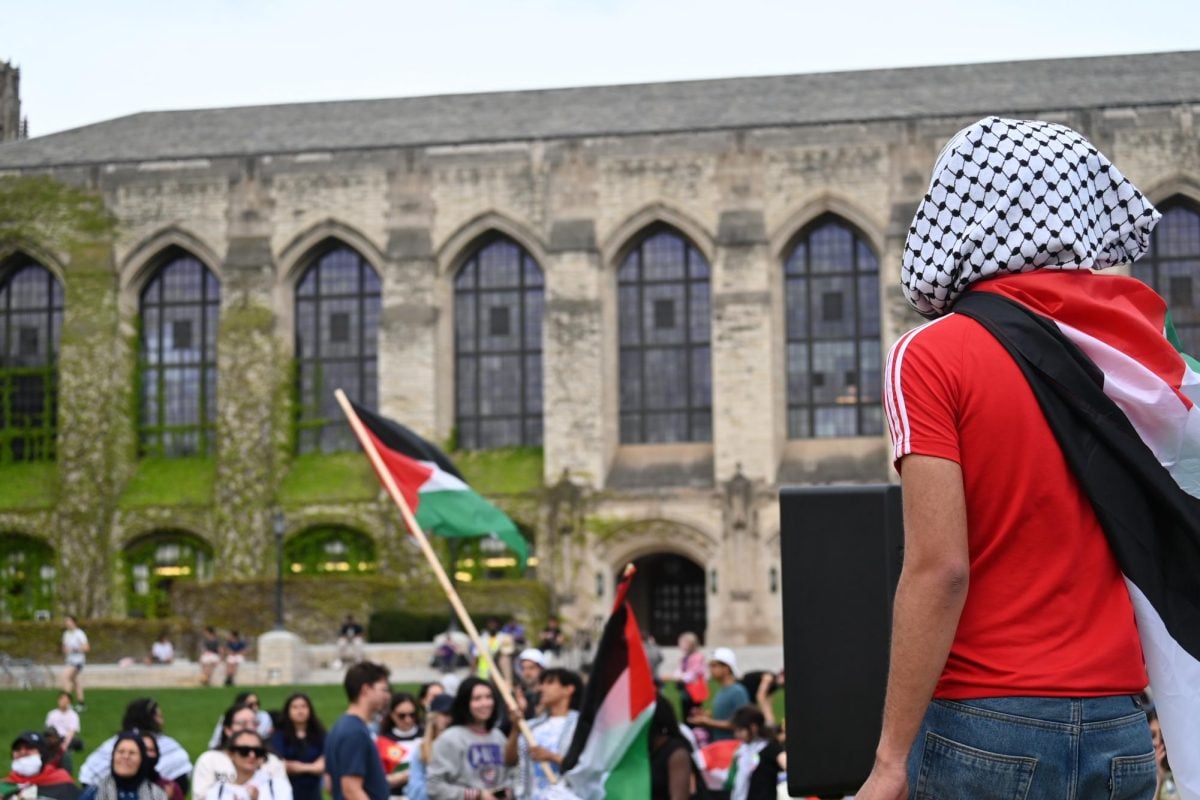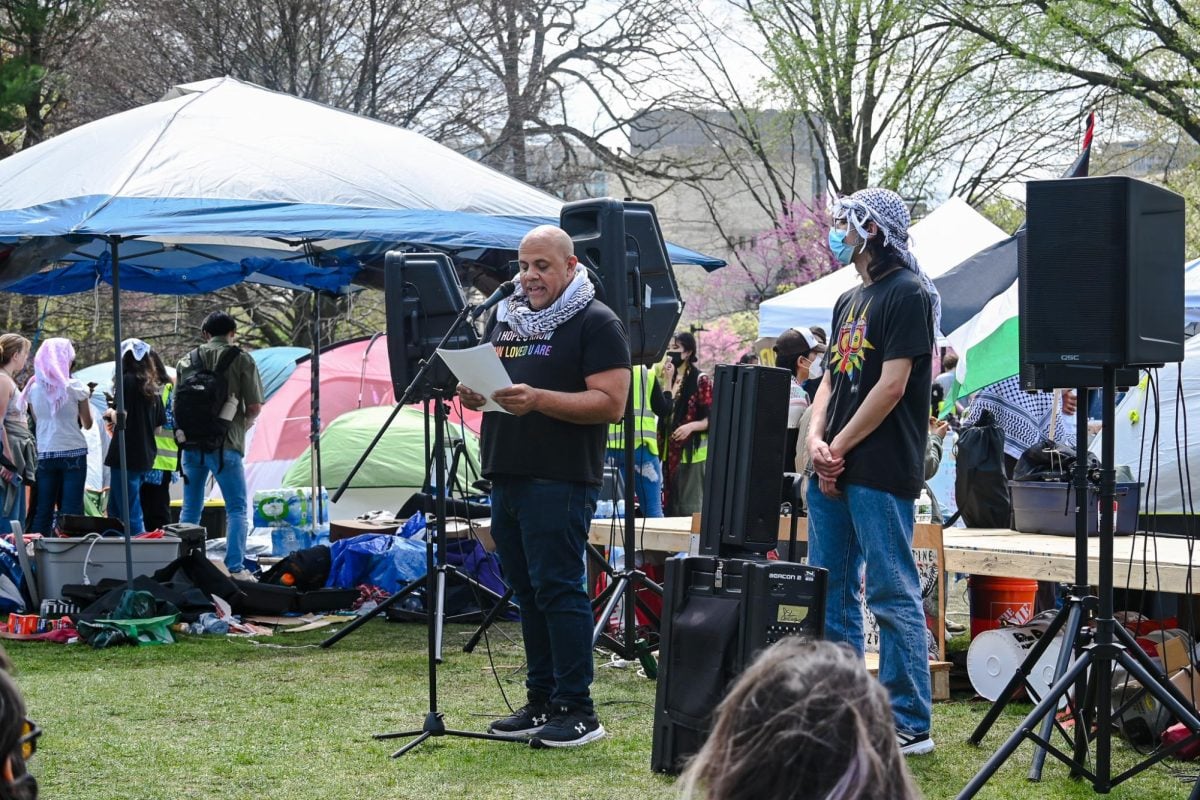Northwestern’s history department and the graduate cluster in British studies hosted writer and lecturer Kenan Malik in Harris Hall Monday afternoon. In a moderated talk with history Prof. Kennetta Hammond Perry, Malik discussed his latest book, “Not So Black and White.”
Malik’s main areas of study include theories of human nature and the philosophy of race and identity. Much of his work centers around multiculturalism and the intersection of class and identity, for which he was shortlisted for the Orwell Prize.
Malik said he always thought of race as “something through which one can understand the many contradictions of modernity.” He said there is a paradox between society’s abstract belief of equality and the social practices that enforce inequity.
“We live in societies that have a moral abhorrence of racism … but we also live in an age in which we’re kind of obsessed with putting people into racial and ethnic boxes,” Malik said. “The more we despise racism, the more we’re drawn to some form of racial thinking.”
In “Not So Black and White,” Malik discusses the intersection between the histories of race and struggles against racism and its effect on social policy.
He said societies have long harbored foundational beliefs on equality that contradict unequal practices like slavery. Race then became a means of justifying these practices by arguing that certain people were undeserving of equality and liberty, he said.
Communication and English Prof. Tracy Davis — one of the faculty involved with the British studies cluster — said she found clarity in Malik’s differentiation of social concepts within cultures and over time.
“That’s often the work that a historian can do: to help us untangle the things we take for granted,” Davis said.
Later in the talk, Malik said he is against the universalistic notion that putting people in racial categories equates to racism.
Instead, he defined racism as the social practices whereby people are treated solely on the basis of the categories they belong to.
“It’s not race that gives rise to racism,” he said. “Racism gives rise to race.”
Malik said those without hope for radical political change tend to cling onto their identities and the comfort of solidarity.
History Prof. Sarah Maza said she attended the event because of its application to French history, one of her principal research interests. She said she was intrigued by Malik’s portrayal of identity politics as a modern refuge.
“When people feel let down by a system that doesn’t recognize social justice, they take refuge in their identity,” Maza said. “I thought that was very thought provoking.”
Second-year PhD candidate in history Julia Barr said she enjoyed hearing NU’s history faculty engage with one another. She said she appreciated their questions and the different examples from their respective fields of study.
Although she said she found it interesting to think in terms of universalist and identity politics, Barr said she recognizes the in-between.
“It is important to see maybe where that structure doesn’t hold,” Barr said.
Email: [email protected]
Twitter: @esther_zsl
Related Stories:
— Scholars present research at Northwestern Afrobeats symposium
— Rachel Maddow discusses new book and intersections between history and public discourse

